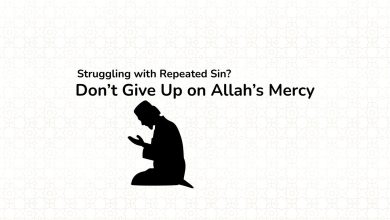Gratitude and Goals: How SHUKR Drives Productivity
In Islam, gratitude (shukr) is more than a fleeting emotion—it is a transformative state of the heart that shapes our actions, intentions, and outcomes. When paired with purposeful goal-setting, gratitude becomes a powerful tool for productivity, aligning our worldly efforts with spiritual growth. By rooting our ambitions in thankfulness, we invite Allah’s blessings (barakah) into our endeavors, making our time and efforts more meaningful and effective. This article explores how gratitude, as taught in the Quran and Sunnah, enhances productivity, supported by practical steps and Islamic references to guide us in harmonizing faith with our daily goals.
The Islamic Foundation of Gratitude
Gratitude in Islam is a comprehensive act of worship. Allah emphasizes its importance in the Quran, stating:
“And [remember] when your Lord proclaimed, ‘If you are grateful, I will surely increase you [in favor]; but if you deny, indeed, My punishment is severe.'” (Surah Ibrahim 14:7)
This verse establishes a divine promise: gratitude leads to an increase in blessings, whether in wealth, time, health, or opportunities. Conversely, ingratitude risks loss and divine displeasure. For Muslims, shukr involves recognizing Allah’s favors, expressing thanks through words, and using those blessings in ways that align with His commands.
Gratitude as a Catalyst for Productivity
Gratitude enhances productivity by fostering a positive mindset, strengthening discipline, and inviting divine barakah. Here’s how these elements connect, supported by Islamic teachings:
-
Gratitude Cultivates a Positive Mindset
A grateful heart sees opportunities where others see obstacles. The Quran reminds us to focus on Allah’s favors, no matter the circumstances:

“So remember Me; I will remember you. And be grateful to Me and do not deny Me.”
(Surah Al-Baqarah 2:152)
When we begin our day with gratitude—through morning adhkar or reflecting on blessings like health, family, or provision—we shift our focus from what we lack to what we have. This mindset reduces stress and increases motivation, key drivers of productivity. For example, instead of feeling overwhelmed by a busy schedule, a grateful Muslim might say, “Alhamdulillah, I have the ability to work and contribute,” which reframes tasks as opportunities for growth and reward.
Practical Tip: Start your day with the du’a for waking up:
الْحَمْدُ لِلَّهِ الَّذِي أَحْيَانَا بَعْدَ مَا أَمَاتَنَا، وَإِلَيْهِ النُّشُورُ
“Alhamdulillahilladhi ahyana ba’da ma amatana wa ilayhin-nushur.”
(Translation:All the Praises are for Allah Who has made us alive after He made us die (sleep) and unto Him is the Resurrection.)
(Sahih al-Bukhari, Hadith 6324)
Follow this with a five-minute gratitude journal, listing three blessings (e.g., health, knowledge, or a supportive friend) and how you can use them productively today.
-
Gratitude Strengthens Discipline
Productivity requires discipline, and gratitude reinforces it by reminding us of our purpose.
‘A’isha reported Allah’s Messenger (ﷺ) as saying:
“The acts most pleasing to Allah are those which are done continuously, even if they are small. and when ‘A’isha did any act she did it continuously.” (Sahih Muslim, Hadith 783)
Gratitude helps us stay consistent by keeping us mindful of why we pursue our goals. For instance, a student studying for exams might feel discouraged, but reflecting on the blessing of education and the chance to serve others with knowledge can renew their drive. Gratitude anchors our efforts in ikhlas (sincerity), ensuring our goals align with pleasing Allah.
Practical Tip: Before starting a task, make a sincere intention (niyyah) and say, “Alhamdulillah for the opportunity to learn/work/serve.” This connects your effort to gratitude and worship, making even mundane tasks spiritually rewarding.
-
Gratitude Invites Barakah
Barakah is the divine blessing that multiplies the impact of our efforts. Gratitude is a key to unlocking it, as Allah promises to increase those who are thankful (Surah Ibrahim 14:7). A productive Muslim seeks barakah to make their time and resources go further.
Ibn Abbas reported: The Messenger of Allah ﷺ said, “Take advantage of five before five:
“your youth before your old age, your health before your illness, your riches before your poverty, your free time before your work, and your life before your death.“
Source: Shu’ab al-Imān 9767
Gratitude for these five blessings—youth, health, wealth, time, and life—motivates us to use them wisely before they diminish. For example, thanking Allah for free time encourages us to use it for productive acts like learning, volunteering, or worship, rather than wasting it.
Practical Tip: Perform two rak’ahs of Salat ash-Shukr (prayer of gratitude) when you achieve a goal or receive a blessing. This reinforces thankfulness and invites barakah into future endeavors.
Setting Goals with Gratitude
Goal-setting in Islam is not just about achieving worldly success but about aligning our ambitions with our ultimate purpose: to worship Allah and seek His pleasure. Gratitude enhances this process by grounding our goals in faith. Here’s a step-by-step guide to setting productive goals with a grateful heart:
Reflect on Blessings Before Planning: Before setting goals, reflect on Allah’s favors.
The Quran says: “And if you should count the favors of Allāh, you could not enumerate them. Indeed, Allāh is Forgiving and Merciful.” (Surah An-Nahl 16:18)
Take a moment to list specific blessings related to your goal (e.g., skills, resources, or support). This fosters humility and gratitude.
Make Intentions Sincere: The Prophet (peace be upon him) said: “Actions are judged by intentions, and every person will have what they intended.” (Sahih al-Bukhari, Hadith 1)
Frame your goals with the intention to please Allah, whether it’s advancing in your career to provide for your family or studying to benefit the ummah.
Break Goals into Small, Consistent Steps: Inspired by the hadith on consistent deeds (Sahih Muslim, Hadith 783), break your goals into manageable tasks.
For example, if your goal is to memorize a surah, commit to one ayah a day with gratitude for the ability to learn.
Express Gratitude at Milestones: Celebrate progress with acts of shukr, like giving sadaqah or making du’a. Acknowledge those who help you achieve your goals, such as mentors or family, to cultivate a grateful heart. The Prophet ﷺ said: “He who does not thank people does not thank Allah.”
(Sunan Abi Dawud, Hadith 4811)
Seek Forgiveness for Shortcomings: If you fall short, combine gratitude with istighfar (seeking forgiveness). The Quran says: “And said, ‘Ask forgiveness of your Lord. Indeed, He is ever a Perpetual Forgiver. He will send [rain from] the sky upon you in [continuing] showers. And give you increase in wealth and children and provide for you gardens and provide for you rivers.” (Surah Nuh 71:10-12)
Gratitude paired with repentance keeps you humble and motivated to persist.
Real-Life Application: A Case Study
Consider Amina, a Muslim professional aiming to launch a small business. She feels overwhelmed by the challenges of entrepreneurship. By applying gratitude, she transforms her approach:
Morning Routine: Amina starts her day with the du’a for waking up and lists three blessings: her skills, supportive family, and access to resources. This shifts her mindset from anxiety to optimism.
Goal-Setting: She sets a goal to launch her business in six months, with the intention to provide halal services and support her community. She breaks this into daily tasks, like researching suppliers or creating a website.
Gratitude in Action: Each week, Amina performs Salat ash-Shukr for progress, no matter how small, and gives sadaqah to share her blessings. When setbacks occur, she seeks istighfar and reflects on lessons learned.
Outcome: Amina’s gratitude fuels her persistence, attracts barakah to her efforts, and helps her build a network of supportive clients. Her business grows steadily, and she feels spiritually fulfilled.
Overcoming Common Productivity Challenges with Gratitude
Gratitude can address common productivity hurdles, such as procrastination, burnout, and comparison:
Procrastination: Reflecting on the blessing of time, as in the hadith of “five before five,” motivates immediate action. Say, “Alhamdulillah for this moment,” and start with a small task.
Burnout: Gratitude for health and purpose prevents exhaustion. Take breaks to pray or recite adhkar, like: “SubhanAllah, Alhamdulillah, Allahu Akbar.”
This renews energy and focus.
Comparison: Focus on your unique blessings to avoid comparison and stay productive.
Conclusion
Gratitude is a spiritual and practical tool that transforms how we pursue our goals. By rooting our productivity in shukr, we align our efforts with Allah’s pleasure, invite barakah, and cultivate resilience. The Quran and Sunnah teach us that gratitude is not passive—it is an active practice of recognizing blessings, using them wisely, and striving for ihsan. As we set goals, let us begin with “Alhamdulillah,” work with sincerity, and trust Allah’s promise to increase those who are grateful.
Final Du’a:
“Rabbana atina fid-dunya hasanatan wa fil-akhirati hasanatan waqina ‘adhaban-nar.”
“Our Lord, give us in this world [that which is] good and in the Hereafter [that which is] good and protect us from the punishment of the Fire.”
(Surah Al-Baqarah 2:201)



